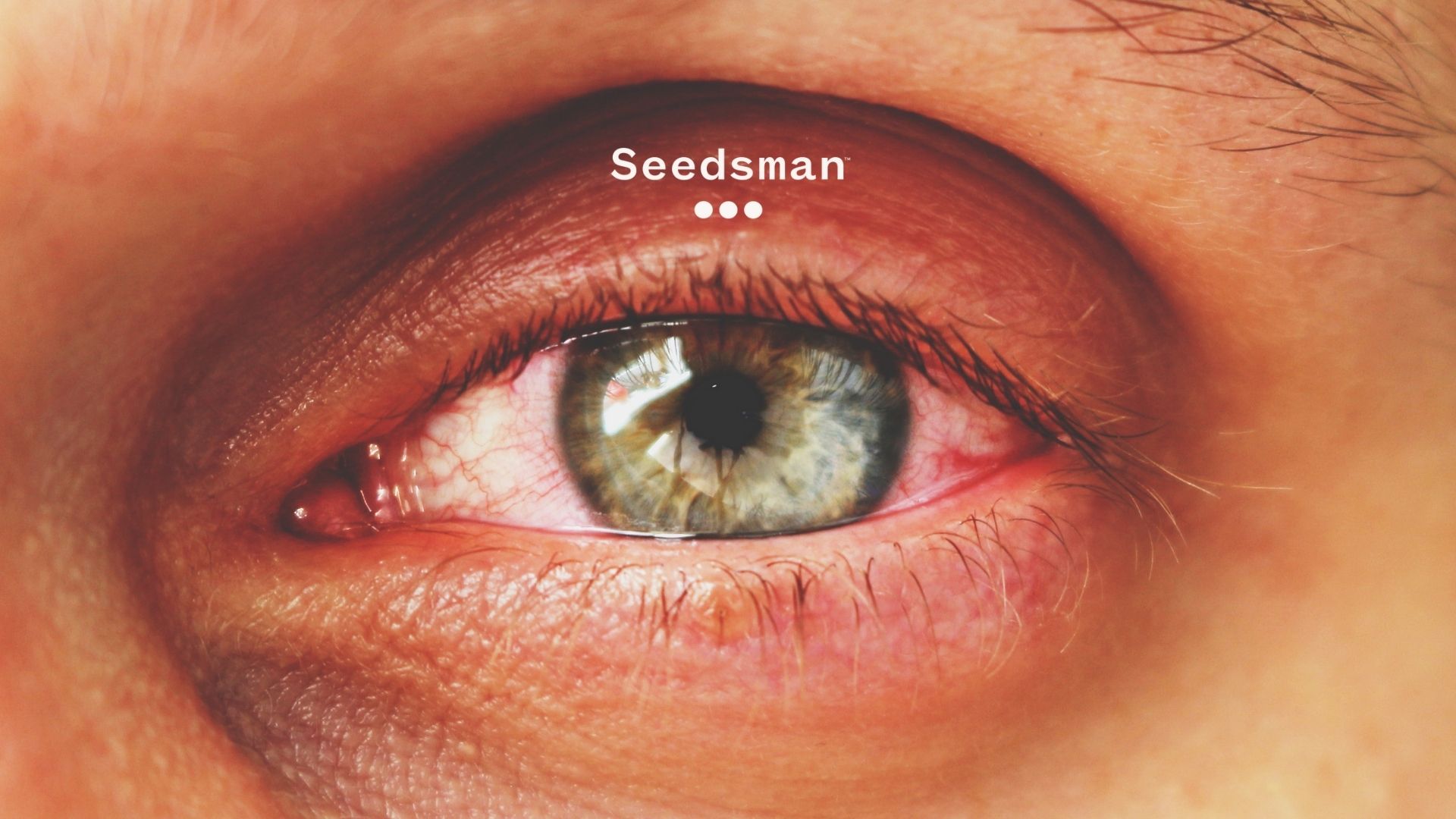
Allergic to Cannabis? – Seedsman Blog
Although rare, cannabis allergies are a genuine issue that can cause problems for some users worldwide. It makes sense that cannabis use can be problematic for those who suffer from cannabis allergies, but in some cases, merely handling the plant can cause a nasty reaction.
Fortunately, there are ways to manage cannabis allergies to minimise any reaction.
So what do you do if you use or work with cannabis and experience allergic reactions? Research published in 2014 focused on cannabis sativa and found that the plant can cause several allergic reactions, including hayfever responses, conjunctivitis and skin rashes.
What Causes Cannabis Allergies?
Like other plant-based allergies, cannabis allergies are attributable to pollen, pests, and even mould, but higher cannabinoid tetrahydrocannabinol (THC) concentrations may also be a factor. If you’re someone who already suffers from other plant allergies, there’s a likelihood you’re more susceptible to cannabis allergies – but even if you’re not, you can develop allergies.
While pollen is typically only produced by male cannabis plants, it can still be produced by female plants that express hermaphroditic male flowers.

As decriminalisation, legalisation, and medical cannabis herald new jobs working with cannabis, more and more people will be exposed to cannabis through their careers, and instances of cannabis allergies are starting to rise. Suppose you work in the cannabis industry and your work involves handling marijuana plants. In that case, you’re regularly exposed to large quantities of pollen which should protect your skin and airways to reduce the risk of allergic reaction.
If you’re using medical cannabis for other ailments, the last thing you want is for cannabis to bring you new health concerns!
Symptoms of a Cannabis Allergy
An allergic reaction occurs when the body’s immune system begins to fight off what it deems a dangerous invader. Knowing what to look for is critical when self-diagnosing an allergy. There are typical allergic responses from the body when affected adversely by any allergy, and cannabis is no different. While you may experience red eyes and dry mouth from cannabis use, these symptoms are not indicative of an allergic reaction and are instead par for the course.
Signs of allergy are likely to be more severe, and some of those symptoms must be acted upon quickly.
Cannabis Makes me Itchy
Most likely to manifest on the skin or in and around the eyes, prolonged itching is often an early indicator of an allergic reaction. While not a severe symptom, itching can be uncomfortable. Itching can also come with redness, similar to the classic response to high pollen experienced by hayfever sufferers.
Cannabis Gives me a Rash
Likely after handling cannabis, look for dry skin on the hands or other areas of the body. These symptoms can occur immediately after handling cannabis but, in some instances, may take up to an hour to manifest. Similarly, look out for any rashes, blotchiness, signs of hives, or contact dermatitis appearing on the skin as a possible tell-tale sign of marijuana allergy.

Cannabis Makes my Eyes Water
Again similar to classic hayfever reaction, if your eyes start watering after being around cannabis plants, this is another likely allergy symptom. It’s generally a relatively mild reaction, but another indicator nonetheless, and can lead to itching and discomfort.
Cannabis Makes me Sneeze
If you suddenly find your nose becomes blocked, runny, or you start having sneezing fits, this is known as rhinitis and is yet another indicator of an allergic reaction. So far, many of the symptoms are much the same as the body’s standard response to pollen and are among the less severe signs of allergy.
Cannabis can Cause Anaphylactic Shock
Far more severe and potentially life-threatening, anaphylaxis is the most extreme response to an allergy. The possible effects of anaphylaxis are significant and sudden breathing difficulties caused by the airways closing in response to the allergy and low blood pressure, leading to fainting. In the case of anaphylaxis, you should seek immediate medical attention. Thankfully, this response seems to be extremely rare.
How Cannabis Allergies are Diagnosed
Medical professionals will typically carry out testing by one of two means; a skin test or a blood test. Doctors will bring a small amount of diluted allergen into contact with the person’s skin in skin prick testing, then monitor the reaction. While effective, this method runs the risk of aggravating symptoms in those who suffer from cannabis allergies and can potentially lead to some of the responses listed above.

A blood test is a safer and more comprehensive testing method for cannabis allergies and involves drawing a small quantity of blood and testing it for antibodies to cannabis. If antibodies are found at a higher level in the blood, this is enough to indicate cannabis allergy in the person. The downside to a blood test is the length of time to receive results.
It should be noted that these tests for cannabis allergies exclusively may not be available in your area.
How to Manage a Cannabis Allergy
All ingestion methods carry a risk if you have a cannabis allergy, whether smoking, vaping, or using edibles. Depending on the severity of your cannabis allergy, there are various means available to alleviate symptoms. As many cannabis allergies will manifest in much the same way as common hayfever, antihistamines can control the more basic signs such as itching, rashes, mild respiratory symptoms or a runny nose. Something as simple as a prescription inhaler, nasal spray or over-the-counter cold and flu medicine can provide an effective means of controlling coughing and sneezing. Still, while these methods may work in the short term, they should not be used as a long-term coping strategy for your allergy.
Suppose your reaction to cannabis is severe, or you find yourself having responses every time you come into contact with the plant. In that case, you should reduce your contact with cannabis products as much as possible or altogether.
In the case of severe reactions, an EpiPen should be prescribed to manage the risk of anaphylaxis. EpiPens deliver a sudden dose of the hormone epinephrine (also called adrenaline), which reverses the dilation of the blood vessels caused by anaphylaxis, causing them to constrict and raise lowered blood pressure. In addition, epinephrine relaxes the muscles in the airways, making it easier to breathe. Suppose you’ve experienced an allergic reaction due to coming into contact with mouldy cannabis. In that case, medical attention should be your first port of call – but this is different from a standard allergy to cannabis in general.
Major v Minor Allergic Reactions to Cannabis
It’s likely that if you are a hayfever sufferer, coming into contact with cannabis pollen will bring about the same kind of symptoms as any other plants do. If your symptoms are minor, but you use medical marijuana or recreational cannabis, you should be able to continue to smoke it with minimal issues.
In the rare and unlikely event that you suffer a more severe reaction, you should stay away from the plant altogether. If you have any doubts, seek medical advice and ask your healthcare provider for a test to establish whether you have a cannabis allergy or not.
Cultivation information, and media is given for those of our clients who live in countries where cannabis cultivation is decriminalised or legal, or to those that operate within a licensed model. We encourage all readers to be aware of their local laws and to ensure they do not break them.
Source link












